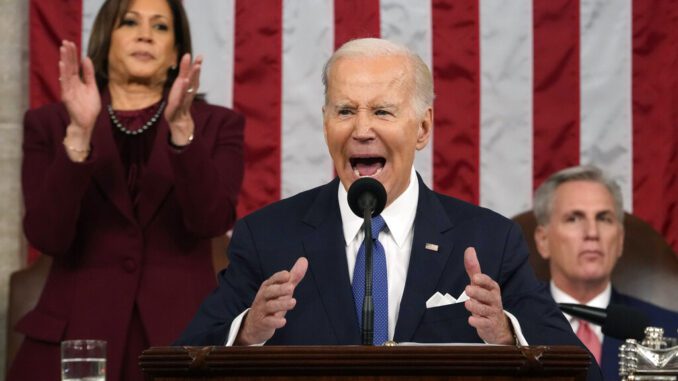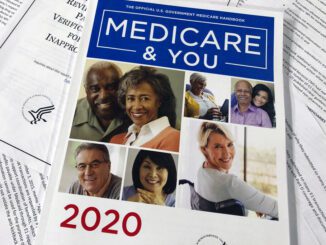
The barbs exchanged at the State of the Union address remind us of the ease with which each party feels it can blame the other for the worsening of federal indebtedness year after year, Congress after Congress, and presidential administration after administration.
These routinized charges are not only counterproductive, they are inaccurate. My comprehensive study of the issue shows that the U.S. has soaring debt not primarily because of actions taken by any current officeholder, but because of a stream of legislation enacted between 1965 and 1972.
The study was motivated by dissatisfaction with the uninformative way these questions are typically discussed in a political context. Partisans, ideologues and interest groups have become adept at framing these questions in ways designed to cast blame on their political opposition. All one needs to do is to only count deficit-increasing actions taken upon the other party’s accession to power, excluding from the picture any previous policy decisions. Presto! The other party is found at fault for the mounting debt.
The only fair and thorough way to analyze the issue is to examine the entirety of the federal budget, quantifying each policy’s contribution to the problem irrespective of when it was enacted. Doing this reveals that nearly three-fifths of the worsening federal fiscal gap is the product of legislation enacted during the aforementioned time period. Specifically, it was spawned by the enactments of Medicare and Medicaid in 1965, along with subsequent expansions of both programs as well as to Social Security in 1971-1972. Astoundingly, all policy decisions combined over the last 50 years have not contributed as much to the widening fiscal gap as the decisions made in those few eventful years.
Autopilot Medicare cost growth is the single greatest contributor to the mounting fiscal imbalance, as documented by recurring reports from the Congressional Budget Office. While there have been isolated expansions of the program over the years as well as countervailing efforts to contain its cost growth, the largest component of Medicare’s excess growth was unleashed in its original enacting legislation in 1965.
Medicaid growth is another significant contributor to the mounting problem, but its history is different. Its excess cost growth is due in part to its 1965 origination and to expansions in 1971-1972, but even more so to subsequent expansions, most recently in the 2010 Affordable Care Act.
Social Security would be in financial balance were it not for a dramatic expansion and enactment of automatic growth provisions in 1972. Lawmakers have yet to determine how to finance these ongoing increases, which today pose an intensifying threat to the program’s solvency.
While my study was conducted as an informational antidote to partisan finger-pointing, it may be worth noting that those bearing largest responsibility for the current problem include one long-ago Democratic president, Lyndon B. Johnson, and one Republican, Richard Nixon (both working with a Congress then under unified Democratic control).
While the perennial problem is driven by legislative decisions made more than five decades ago, deficits in particular years can be greatly affected by legislation during or leading up to those years. For example, the year my study was published (2021) exhibited historically elevated deficit spending. The vast majority of this spending was enacted during the COVID-19 pandemic, in the last year of the Trump administration and the first year of the Biden administration. Huge though this spending was, it was mostly temporary and did not cause the long-term problem.
Officeholders prefer not to acknowledge these realities because of the bipartisan popularity of the programs driving the worsening fiscal problem. It’s easier to allege, falsely, that the only threats to these programs are their enemies in the opposing party. Politicians emphasize partisan distinctions and proclaim their superior budgetary virtue by distracting voters with other federal budget policy disagreements, such as those over taxes and annual appropriations. Unfortunately, these sideshow policy battles simply don’t affect the fiscal situation nearly enough to correct it, no matter how they are resolved.
Abraham Lincoln once said, “If we could first know where we are, and whither we are tending, we could better judge what to do, and how to do it.” Where we are is clear; what to do is less so. Policymakers will naturally differ over how best to correct for miscalculations made long ago, but neither party can fix the situation by itself. Our debt problems will only worsen until legislators of both parties work together to moderate the operation of longstanding provisions of law that no current officeholder authored.
Charles Blahous is the J. Fish and Lillian F. Smith Chair at the Mercatus Center and a Visiting Fellow with the Hoover Institution.
Opinion first published in Meadville Tribune February 15, 2023



